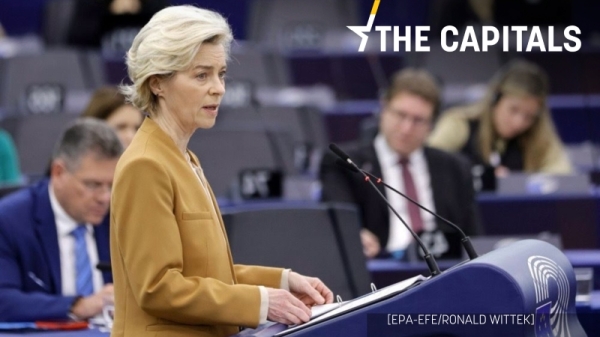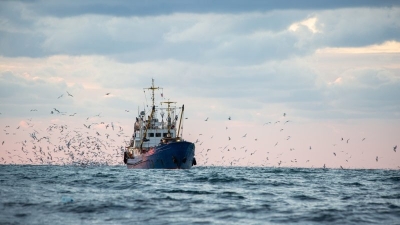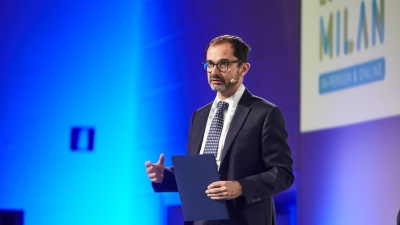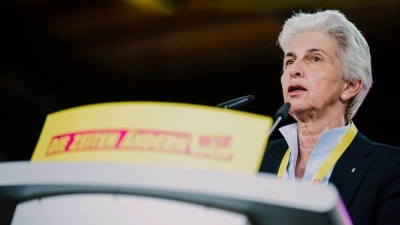Putin ‘pushed green transition’ of the EU, says von der Leyen

Speaking at the 50th anniversary of the International Energy Agency (IEA) at the OECD on Tuesday, European Commission President Ursula von der Leyen and French Economy Minister Bruno Le Maire said Vladimir Putin’s war in Ukraine had forced the EU to speed up its energy transition.
“Last year in 2023, for the first time ever, we produced more electricity from wind and sun than from gas”, said the president of the European Commission during her speech at the IEA’s 50th anniversary in Paris.
Von der Leyen recalled the efforts made by the EU and Europeans in recent years to deal with the successive crises of COVID-19 and the war in Ukraine. Above all, she spoke of the effects of the war in Ukraine on the EU’s energy plan.
“One in five units of energy consumed in the European Union came from Russian fossil fuels. Today, it is one in 20”, she said. “We got more energy overall from renewables in the European Union than from Russia”, she added.
As a result, “Putin’s attempt to blackmail our union has utterly failed”, she declared, referring to the drastic reduction in Russian gas flows to the EU following the outbreak of war.
“On the contrary, he really pushed the green transition”, she continued, adding something not previous to her official speech.
It is now time for the EU to work “more closely with the future members of our Union like the Western Balkans, Ukraine, Moldova and Georgia”, said von der Leyen. She also intends to forge new partnerships with Mediterranean countries such as Tunisia and Mauritania.
In other words, the EU needs to diversify suppliers. The IEA is pushing for this, particularly in critical raw materials, said IEA Executive Director Fatih Birol.
“Electric vehicles, electric batteries or wind farms. If we are 80% dependent on China for lithium, cobalt or rare materials which are found in these carbon-free instruments, the national strategy is effective and efficient only in a European context,” said French Economy Minister Bruno Le Maire, who co-chaired the event with Irish Energy Minister Eamon Ryan.
“Ursula von der Leyen’s ‘fit for 55’ package, the Critical Raw Materials Act (CRMA) and others which will meet these challenges, » he continued.
Thus, “Thanks to Vladimir Putin, we accelerated to be more independent, more sovereign as far as energy is concerned”, he reiterated.
Above all, Le Maire insisted on the need for private funds and European structural funds to complete the energy transition, mainly because national public funds are facing the wall of debt.
“Let’s be very clear, we are all facing huge fiscal difficulties after the Covid crisis with a very high level of public debt,” insisting on the member states nature of the problem.
So don’t count on some more public effort or public funding, because we don’t have the possibilities to put much more public funding on the table.” Instead, “we need to count and to rely on private funding,” he asserts.
It is therefore necessary to make the transition attractive through investment incentives and “to put in place as soon as possible the capital Market Union”. At the very least, complete the work that has already been done in this direction.
Capital Markets Union is an EU initiative to create a genuine single market for capital throughout the EU and enable investments and savings to flow more freely. According to Le Maire, this would make it possible to compete to some extent with the Inflation Reduction Act (IRA) in the United States, designed to finance the transition at the cost of subsidies and incentives worth several hundred billion dollars.
A capital union “will provide billions of euros”, believes Le Maire, turning to John Kerry, the US climate envoy, who is present on the podium.
(Paul Messad | Euractiv.fr)
Read more with Euractiv




